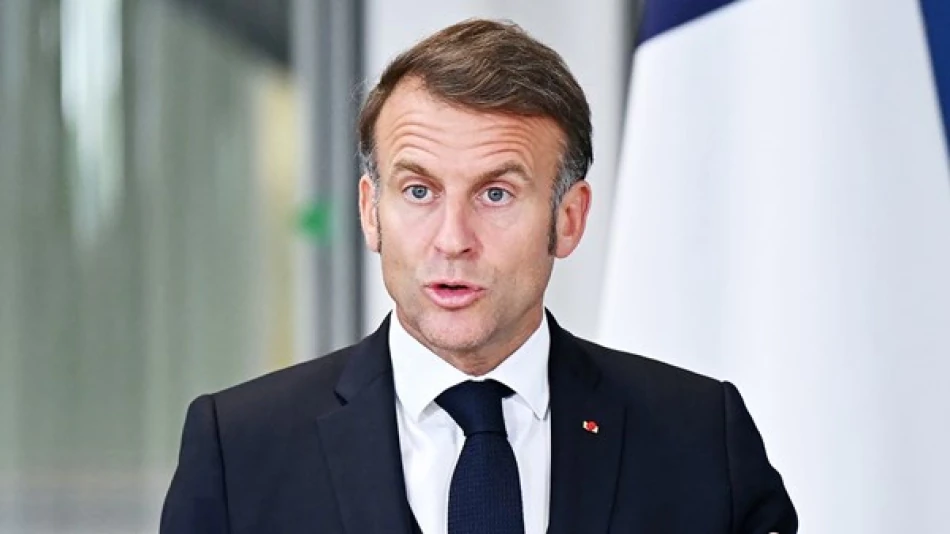
Macron Weighs in on EU-US Trade Deal, Shares Insights
Macron Signals Tariff Deal with Trump is Just the Opening Move in Longer Trade Chess Game
French President Emmanuel Macron has characterized the recent US-EU tariff agreement as merely the first step in what promises to be extended negotiations, suggesting Europe is preparing for a protracted trade battle with the returning Trump administration. His comments mark the first major European leader's assessment of a deal that many economists view as a temporary ceasefire rather than a lasting resolution.
A Tactical Retreat or Strategic Pause?
Speaking during a French cabinet meeting on Wednesday, Macron described the agreement signed last Sunday as "a first step" and "not the end of the road," according to multiple French media reports. The deal, hammered out during intensive talks between President Donald Trump and European Commission President Ursula von der Leyen in Scotland, imposes 15% tariffs on most EU imports to America—a significant reduction from Trump's threatened 30% across-the-board levies.
Macron's measured response reflects the complex political calculations facing European leaders. While he defended the agreement publicly, reports suggest he privately criticized the Commission for not taking a sufficiently strong negotiating stance—a tension that could complicate future EU unity in trade discussions.
Europe's Limited Options in a Shifting Global Order
The French president's emphasis on "short-term stability" reveals Europe's constrained position in an increasingly multipolar trade environment. Unlike previous trade disputes where the EU could leverage its massive single market, Trump's return has coincided with growing US-China tensions that give America more negotiating leverage with traditional allies.
The agreement includes notable exemptions for specific export sectors, particularly aerospace—a crucial win for France's Airbus and related industries. This carve-out suggests European negotiators successfully protected their most competitive sectors while accepting higher costs for other goods.
Market Implications and Investor Calculations
For European exporters, the 15% tariff rate creates a new baseline for pricing strategies and supply chain decisions. Companies that had prepared for Trump's threatened 30% tariffs may find temporary relief, but Macron's warning about longer negotiations signals continued uncertainty that could delay major investment decisions.
The deal's structure—protecting high-value sectors like aerospace while exposing consumer goods—mirrors China's approach during the first Trump administration, where Beijing shielded strategic industries while allowing tariffs on less critical exports. This parallel suggests European policymakers are adopting similar defensive strategies.
The Broader Strategic Context
Macron's comments arrive as Europe faces multiple economic pressures: slowing growth, energy transition costs, and increased defense spending demands. A prolonged trade conflict with America would strain European resources just as the continent seeks to reduce dependence on both US and Chinese supply chains.
The French president's framing of this as an opening move rather than a resolution indicates European leaders expect Trump to return with additional demands, possibly targeting EU digital services taxes, agricultural protections, or climate-related trade measures. This suggests the current agreement may be less about resolving trade tensions than managing them at politically acceptable levels.
For global markets, Macron's assessment points toward continued trade policy volatility, with periodic renegotiations likely becoming a permanent feature of transatlantic economic relations rather than the stable, rules-based system that characterized previous decades.
Most Viewed News

 Layla Al Mansoori
Layla Al Mansoori






